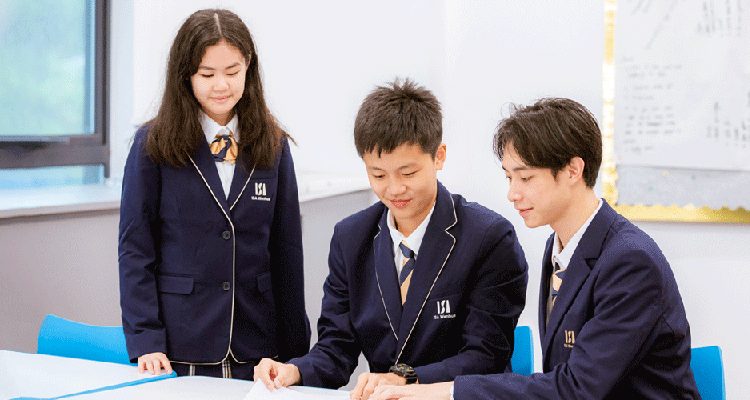



International Baccalaureate Organization was founded in 1968, headquartered in Geneva, Switzerland, registered in UNESCO, known as " Mature international quality education".
So far, there are more than 5,400 IB schools in more than 140 countries and regions around the world. The International Baccalaureate (IB) is a global leader in international education—developing inquiring, knowledgeable, confident, and caring young people. It empowers school-aged students to take ownership in their own learning and help them develop future-ready skills to make a difference and thrive in a world that changes fast. And the IB enables students to direct their own learning pathway and develop the skills and confidence they need to thrive and make a lasting difference.
The IBDP has six major subject groups: Studies in language and literature, Language Acquisition, Individuals and Societies, Mathematics, and The Arts. Each course is divided into Standard Level and Higher Level, students need to choose one course in each group to study, three of which are Higher Level, to ensure the breadth and depth of learning. Therefore, students have a wide range of options when applying to universities.

Theory of Knowledge (TOK) focuses on reshaping students' knowledge structure, covering ethics, history, mathematics, art, natural sciences, humanities, indigenous knowledge systems. Teachers guide students to focus not on the learning of specific knowledge, but on the nature of knowledge think about the reliability of the methods of knowing these knowledge, and think about the dilemma and limitations of knowledge itself.
Extended Essay (EE) is a practical preparation for undergraduate research, developing the skills necessary to formulate research questions, learn how to explore topics in depth, communicate ideas effectively and make convincing arguments.
Creativity, Activity and Service (CAS) encourages students to innovate, raise awareness, care for others, and develop a spirit of cooperation.

In the IB curriculum assessment, each subject grade is composed of internal and external assessments. The internal assessment is conducted by the teachers according to the IB syllabus, and reviewed by the assessors designated by the IBO, which generally account for about 20%-30% of the total score of each subject; the external assessment is formulated and graded by the examiners designated by the IBO. After completion, the school will send the examination papers to the IBO, which generally account for about 70%-80% of the total score of each subject. A process-oriented evaluation system can avoid "one test for a lifetime" and conduct a more comprehensive and objective evaluation of students.
